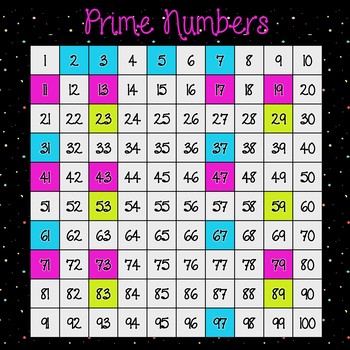

A number of constraints are known, showing what such a "formula" can and cannot be.įormulas based on Wilson's theorem į ( n ) = ⌊ n ! mod ( n + 1 ) n ⌋ ( n − 1 ) + 2, which in this case requires a longer list of primes in its calculation. Why not Well, the definition rules it out. (It is the only even prime.) The number 1 is not prime. Clarifying two common confusions Two common confusions: The number 1 is not prime. No such formula which is efficiently computable is known. A prime number is a positive integer that has exactly two distinct whole number factors (or divisors), namely 1 and the number itself. Step 1: First find the factors of the given number Step 2: Check the number of factors of that number Step 3: If the number of factors is more than two, it is not a prime number. In number theory, a formula for primes is a formula generating the prime numbers, exactly and without exception. If a number is a multiple of any other number, then it is not a prime. The idea of primacy dates back hundreds of years. Prime numbers are numbers that can only be divided by themselves and one.

The only even prime number is 2, since all other even numbers are at least divisible by themselves, 1, and 2. Formula whose values are the prime numbers A prime number is any number greater than 1 that is divisible only by itself and 1. Prime numbers are natural numbers that are divisible by only 1 and the number itself.


 0 kommentar(er)
0 kommentar(er)
